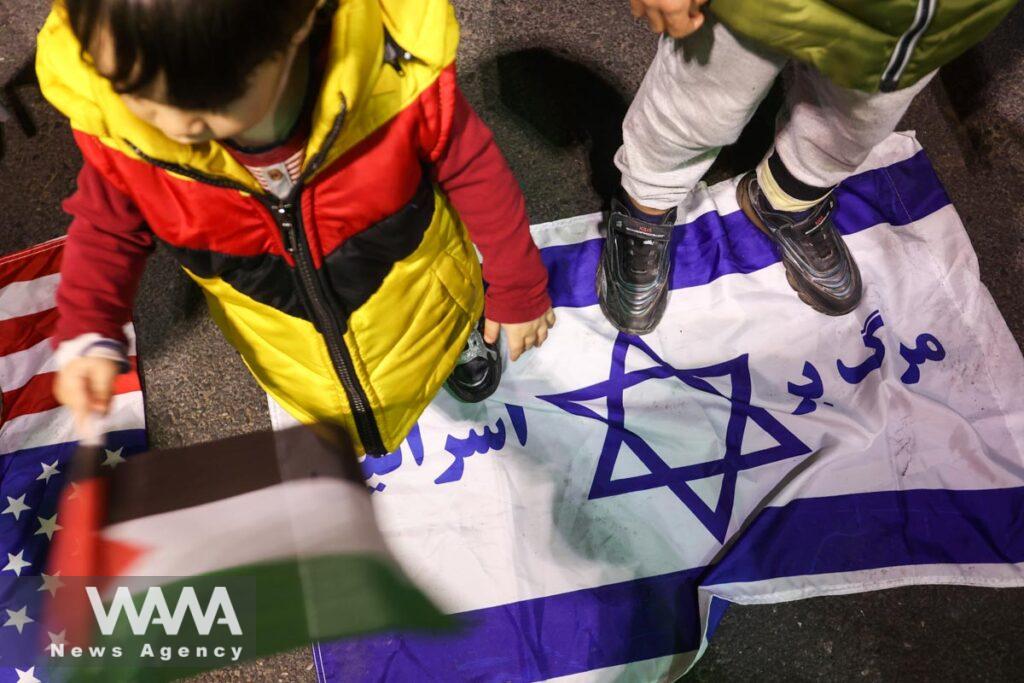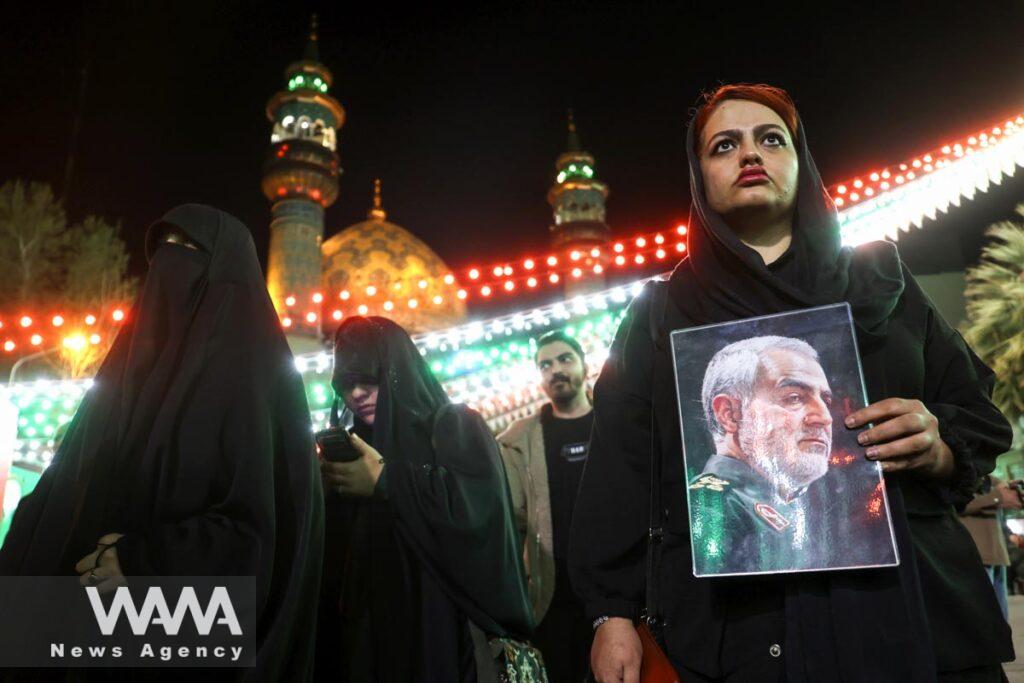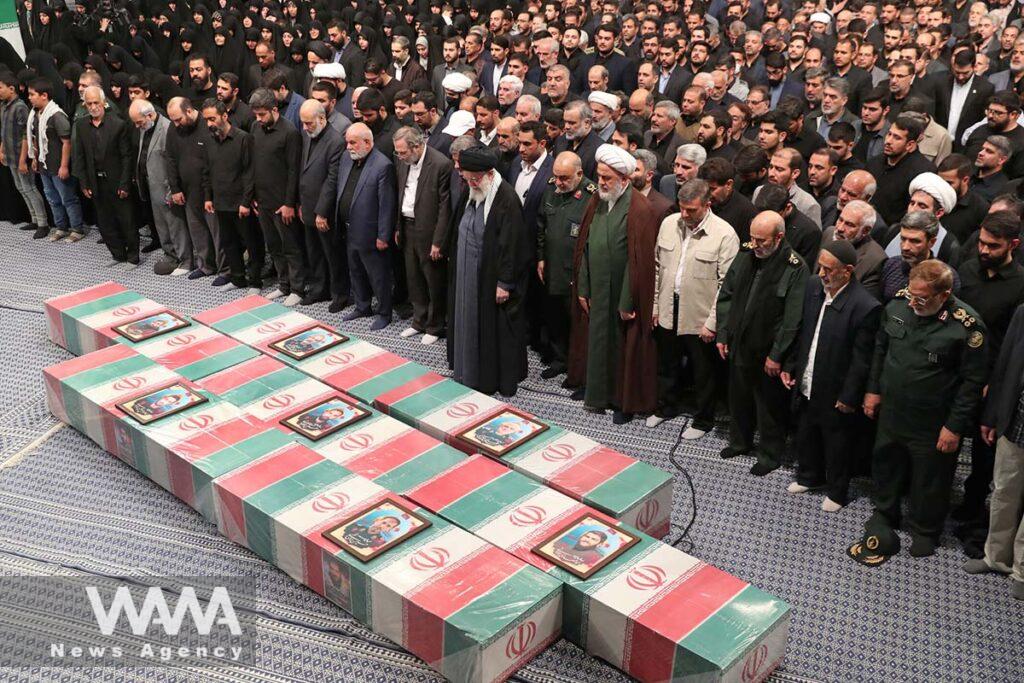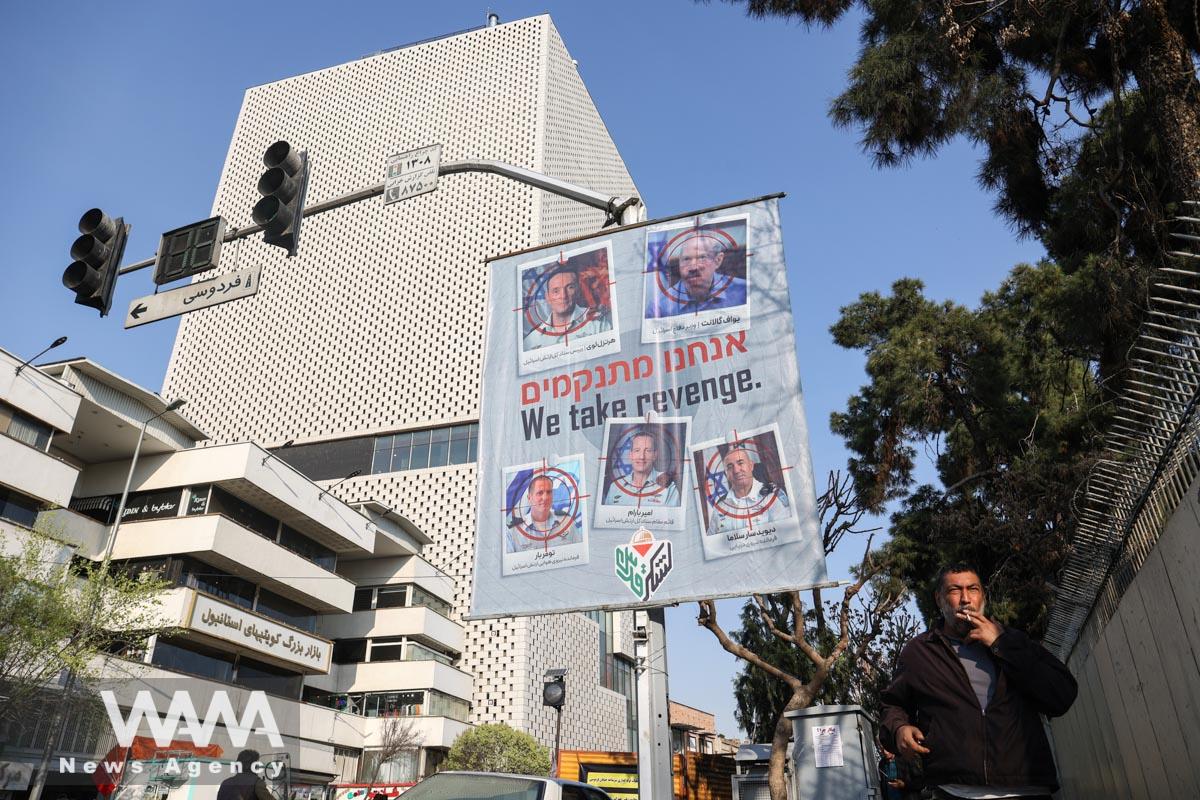Quds Day, How Far Israel Is Willing To Go?
WANA (Apr 04) -Recent events have raised new concerns in the intricate web of geopolitical tensions.
The attack on the consular section of the Embassy of the Islamic Republic of Iran in Damascus has sent shockwaves through the region, amplifying existing political fragilities.
This event is an announcer to a larger conversation regarding the ongoing conflicts in Gaza and the increased scrutiny of Israel’s actions.
The Damascus Attack: A Catalyst for Regional Instability
The recent attack on the consular section of the Iranian Embassy in Damascus stands as a stark reminder of the volatility prevalent in the region.
This attack killed two of Iran’s generals and five military advisers at its embassy compound in Damascus.
Iran’s nation, angered by this attack, protested against this crime and demanded revenge against Israel in the Palestine Square of Tehran the night this attack occurred.
“We must have a serious answer to this attack like the answer we gave during the assassination of General Soleimani (attack on the American military headquarters in Iraq. Ain al-Assad), and this answer must reach the ears of the whole world.” Said an Iranian young man in Tehran after this attack.

An Iranian child stands on the Israeli flag during an anti-Israel protest in Tehran, Iran, April 1, 2024. Majid Asgaripour/WANA (West Asia News Agency)
The funeral of the assassinated generals and commanders of this attack is on Friday, April 5th, which coincides with Quds Day – A day exclusive to the support of Palestine in Iran; so, all eyes are on Iran on this day.
The strike marked one of the most significant attacks yet on Iranian interests in Syria, where Israel has stepped up a long-running military campaign against Iran and the groups it backs as the Gaza war has rippled around the Middle East.
The Syrian Foreign Minister condemned the criminal attacks of Israel in the strongest terms.
Targeting diplomatic premises violates international regulations, especially the 1961 Vienna Convention on Diplomatic Relations. Such acts of Israel show its apparent desire to escalate tensions in the whole region.
While the perpetrators and motivations behind the attack remain under scrutiny, its immediate aftermath has already reverberated across diplomatic channels.
The Supreme Leader of Iran released a message in response to this attack on the Iranian embassy in Syria. In his message, Ayatollah Khamenei said: “The hands of our brave men will punish the evil regime of Israel. We will make them regret this crime and any similar ones.”
Other high-ranking authorities of Iran also made official statements as the supreme leader, all talking about how Iran would retaliate!

An Iranian woman holds a picture of Qassem Soleimani during an anti-Israel protest in Tehran, Iran, April 1, 2024. Majid Asgaripour/WANA (West Asia News Agency)
Escalating Tensions in Gaza: The Cycle of Conflict Continues
The recent clashes between Israel and Gaza have once again laid bare the humanitarian toll of the conflict, prompting international outcry and calls for restraint.
The international community’s response to the conflict in Gaza has been swift and undeniable, with many nations condemning Israel’s actions and calling for an immediate cessation of hostilities.
The extreme casualties among Palestinian civilians, including women and children, have elicited widespread condemnation and renewed calls for a just and lasting solution to the Israeli-Palestinian conflict.
Of course, on the bright side, the constant pressure on Israel to exercise restraint and respect international law emphasizes the shifting dynamics within the region and beyond.
Quds Day: A Symbol of Solidarity and Defiance. This year, more important than ever
Quds Day, also known as Jerusalem Day, is an annual event observed in Iran on the last Friday of the Islamic holy month of Ramadan. The day was initiated by the founder of the Islamic Republic of Iran, Ayatollah Ruhollah Khomeini, in 1979 to express solidarity with the Palestinian people and to protest against the Israeli occupation of Jerusalem, particularly the Old City, which holds significant religious and cultural importance for Muslims, Christians, and Jews alike.
Considering all that happened from Qaza to Damascus and Iran’s diplomatic territory in neighboring countries, the significance of Quds Day in Iran has added importance.
As a day of solidarity with the Palestinian cause and a commemoration of the injustices faced by the Palestinian people, Quds Day holds deep symbolic value for Iranians and Muslims worldwide.
This year, however, the observance of Quds Day carries added weight, serving as a rallying cry against the recent events in Gaza and the attack on the Iranian Embassy in Damascus. The convergence of these events stresses the interconnectedness of regional conflicts and the 75-year quest for justice and liberation.
Quds Day continues to serve as a powerful symbol of Iran’s unwavering support for the Palestinian cause and its steadfast opposition to Israeli occupation, now more than ever!

Iran’s Supreme Leader, Ayatollah Ali Khamenei, prays next to the Coffins of members of the Islamic Revolutionary Guard Corps who were killed in the Israeli airstrike on the Iranian embassy complex in the Syrian capital, Damascus, during a funeral ceremony in Tehran, Iran, April 4, 2024. Office of the Iranian Supreme Leader/WANA (West Asia News Agency)
WANA – S, Khezri












